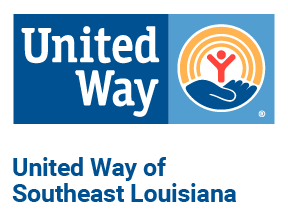The United Way ALICE Project, a groundbreaking study on financial hardship, revealed in 2016 that more than 50 million U.S. households struggle to afford necessities like health care, housing, food, child care, transportation, taxes, and a smart phone.
ALICE – Asset, Limited, Income Constrained, Employed – is a term for households who earn above the Federal Poverty Level, but not enough to cover a basic household survival budget.
United Way of Southeast Louisiana is collaborating with the Louisiana Association of United Ways and 10 Louisiana United Ways to release a 2018 update to the ALICE Report for our region on Jan. 8. This report will paint a clear picture of the scope of financial hardship in Southeast Louisiana — and the reasons behind the struggle.
Meet ALICE: Your neighbor, family member, and friend
In 2014, well over a third of households lived below the ALICE threshold in Southeast Louisiana, with 19 percent in poverty and 23 percent considered ALICE.
ALICE is your waitress, office manager, cashier, and child care worker. ALICE works hard in low-wage jobs that keep our communities running, but don’t pay enough to make ends meet.
Pay rent or car insurance?
When ALICE households lack adequate income, reducing expenses is a matter of survival. These short-term tradeoffs, like a skipped annual wellness exam or delayed car repair, have long-term consequences for us all.
Living paycheck to paycheck with little to no savings, ALICE families are one major accident, medical bill, or harsh storm away from poverty. There’s no question that the devastating floods of 2016 left thousands of households underneath the ALICE threshold and others in poverty. The Miranda family is one example of many.

This widespread financial insecurity affects the entire community, raising taxes, straining local services, and dampening our economy.
Creating lasting change for ALICE families
The ALICE Report sheds light on the staggering number of struggling community members of every age, race, ethnicity, and gender who are overlooked by traditional poverty calculations.
United Way of Southeast Louisiana is working with business, government and community groups to target the underlying issues that hold back ALICE households. We believe every problem - no matter the obstacles, no matter the odds – can be solved when we fight together.
As I’ve said before, the power of collective impact is immense, and our United Way has demonstrated throughout the last year our unique ability to solve problems and bring together hand-raisers, game-changers, and fundraisers. I encourage you to read more about our efforts to ensure that all individuals, including ALICE, are healthy, educated, and financially stable our 2018 Year-In-Review and read the updated ALICE report on Jan. 8 at UnitedWaySELA.org/ALICE.
Lastly, I ask that you continue to fight with us in 2019 as we Unite for ALICE and individuals living in poverty. We have one life to live. To live better, we must LIVE UNITED.

